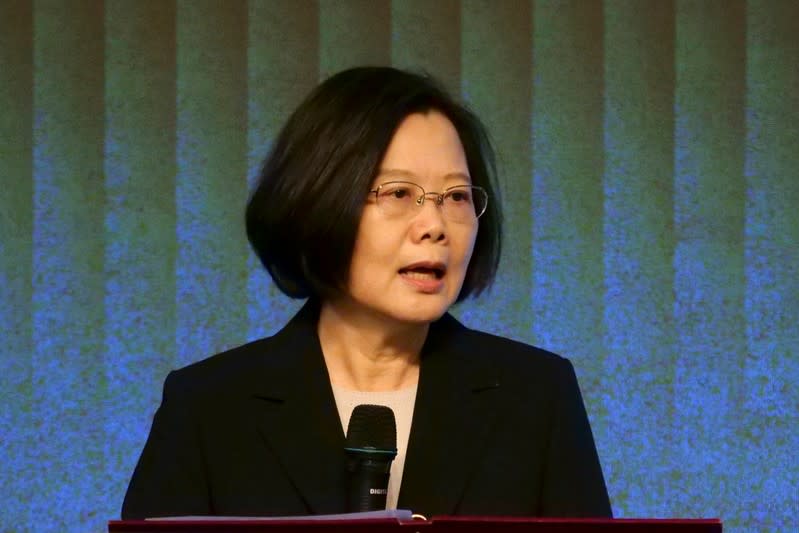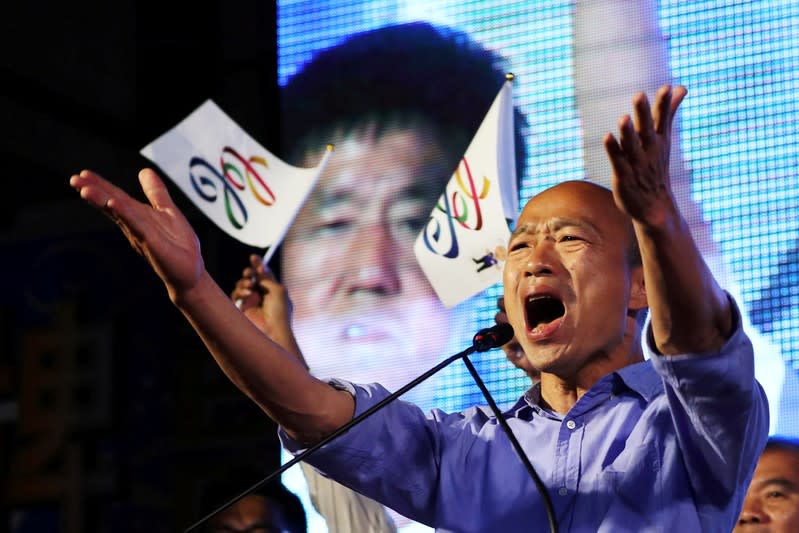China accuses Taiwan ruling party using 'absurd' spying claims to win votes
BEIJING (Reuters) - China likened claims by a Chinese asylum seeker in Australia who said he was a spy for Beijing to an absurd screenplay, accusing Taiwan's ruling party of concocting a story to boost its chances in a looming election.
The allegations by the self-professed spy Wang Liqiang, reported by Australian media, have rocked Taiwan after he detailed Chinese efforts to meddle in Taiwan elections and promote Communist Party influence in Hong Kong.
Taiwan President Tsai Ing-wen and her Democratic Progressive Party (DPP) have seized on the accusations to warn of the threat from China, which deems Taiwan to be Chinese territory to be brought under Beijing's rule by force if necessary.
China has branded Wang a fraud and said it was nonsense to suggest it was interfering in Taiwan's January presidential and parliamentary elections.
"Actually the facts are clear for this 'fraud who became a spy'. This is a totally absurd, loophole-ridden 'screenplay' concocted by anti-China forces," Zhu Fenglian, spokeswoman for China's Taiwan Affairs Office, told a news briefing on Wednesday.
"The DPP authorities and the fraudster have bandied together, wantonly carrying out political manipulation," said Zhu. "Their intention is to create the illusion of the mainland getting involved in the Taiwan regional elections and obtain improper election benefit for themselves".
In response, Taiwanese cabinet spokeswoman Kolas Yotaka was quoted by the official Central News Agency as saying China "should face up to its own internal problems, and not arbitrarily criticize Taiwan's government".
Among several allegations leveled, Wang said he had helped guide positive media attention toward certain Taiwanese politicians and had donated money to them, including President Tsai's main opponent, Han Kuo-yu of the opposition Kuomintang party, which favors close ties with China.
Han, who has said he would drop out of the election if he had taken any money from the Communist Party, said on Tuesday he would sue Wang if he ever came to Taiwan.
Taiwan is also investigating two executives at a Hong Kong-listed company, Xiang Xin and Kung Ching, on suspicion of violating the island's National Security Act after they were named in the allegations made by Wang.
The pair were referred to the Taipei District Prosecutors Office on Wednesday for further investigation.
Xiang owns 15 companies in Hong Kong, including businesses from media, education to technology, corporate filings show.
(Reporting by Beijing newsroom; Writing and additional reporting by Ben Blanchard and Yimou Lee in Taipei; Editing by Simon Cameron-Moore/Mark Heinrich)




